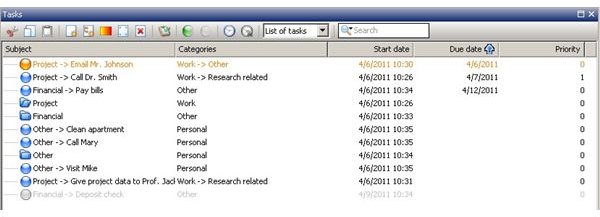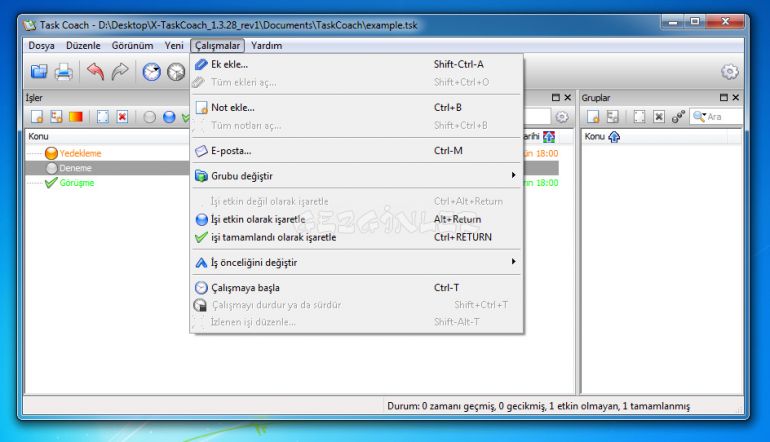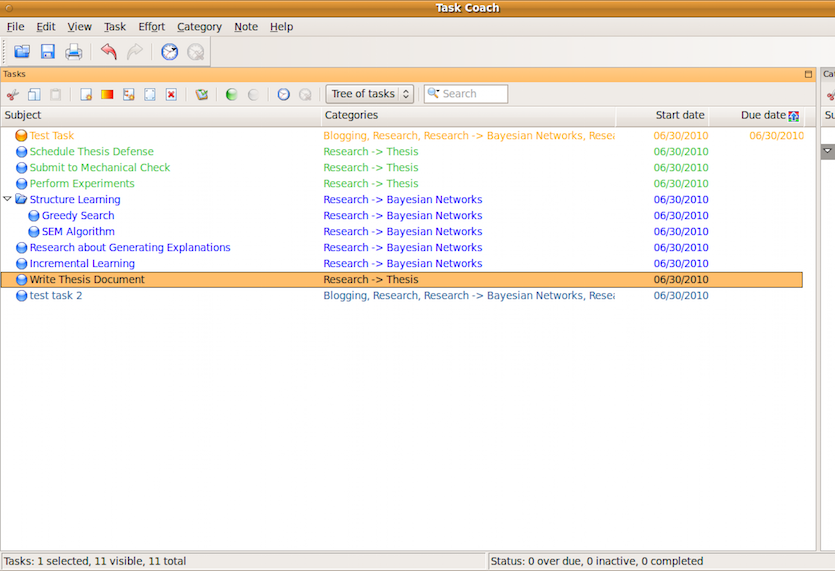
GTG is designed with flexibility, adaptability, and ease of use in mind so it can be used as more than just GTD software. Getting Things GNOME! (GTG) is a personal tasks and TODO list items organizer for the GNOME desktop environment inspired by the Getting Things Done (GTD) methodology. It offers good calendar functionality, as well as the ability to visualize events and effectively plan your day. Planner lets you collect your ideas and organize them. Makagiga is a free, open source, easy-to-use, cross-platform application for doing a variety of tasks, such as text editing, todo listing, RSS reading, and simple image viewing. In addition, it offers effort tracking, categories, and notes. Task Coach is designed to deal with composite tasks. Often, tasks and other things todo consist of several activities. Task Coach is a simple, open source todo manager to keep track of personal tasks and todo lists. Remember that for this series we’re confining our recommendations to open source alternatives.

There are lots of alternatives to Microsoft To Do but many of them are proprietary software. It allows users to manage their tasks from a smartphone, tablet and computer. Microsoft To Do is a cloud-based task management application. This series looks at the best free and open source alternatives to products and services offered by Microsoft. But many developers remain hugely sceptical about Microsoft and their apparent shift to embrace open source. And they have partnered with Canonical, the developers of the popular Ubuntu distro.

Task coach alternative code#
They have made acquisitions such as Xamarin to help mobile app development, and GitHub a hugely popular code repository for open source developers. They have also made investments in Linux development, server technology and organizations including the Linux Foundation and Open Source Initiative. For example, some of their code is open sourced.
Task coach alternative software#
However, in recent years, there has been a partial shift by Microsoft to embrace the open source software paradigm. The campaign was widely criticized for spreading misinformation. Microsoft also initiated its “Get the Facts” marketing campaign from mid-2003, which specifically criticized Linux server usage, total cost of ownership, security, indemnification and reliability. Back in 2001, former Microsoft CEO Steve Ballmer famously tarnished Linux “a cancer that attaches itself in an intellectual property sense to everything it touches”.

Their battle with Linux stretches back many years. Microsoft’s stance for decades was that community creation and sharing of communal code (later to be known as free and open source software) represented a direct attack on their business.


 0 kommentar(er)
0 kommentar(er)
